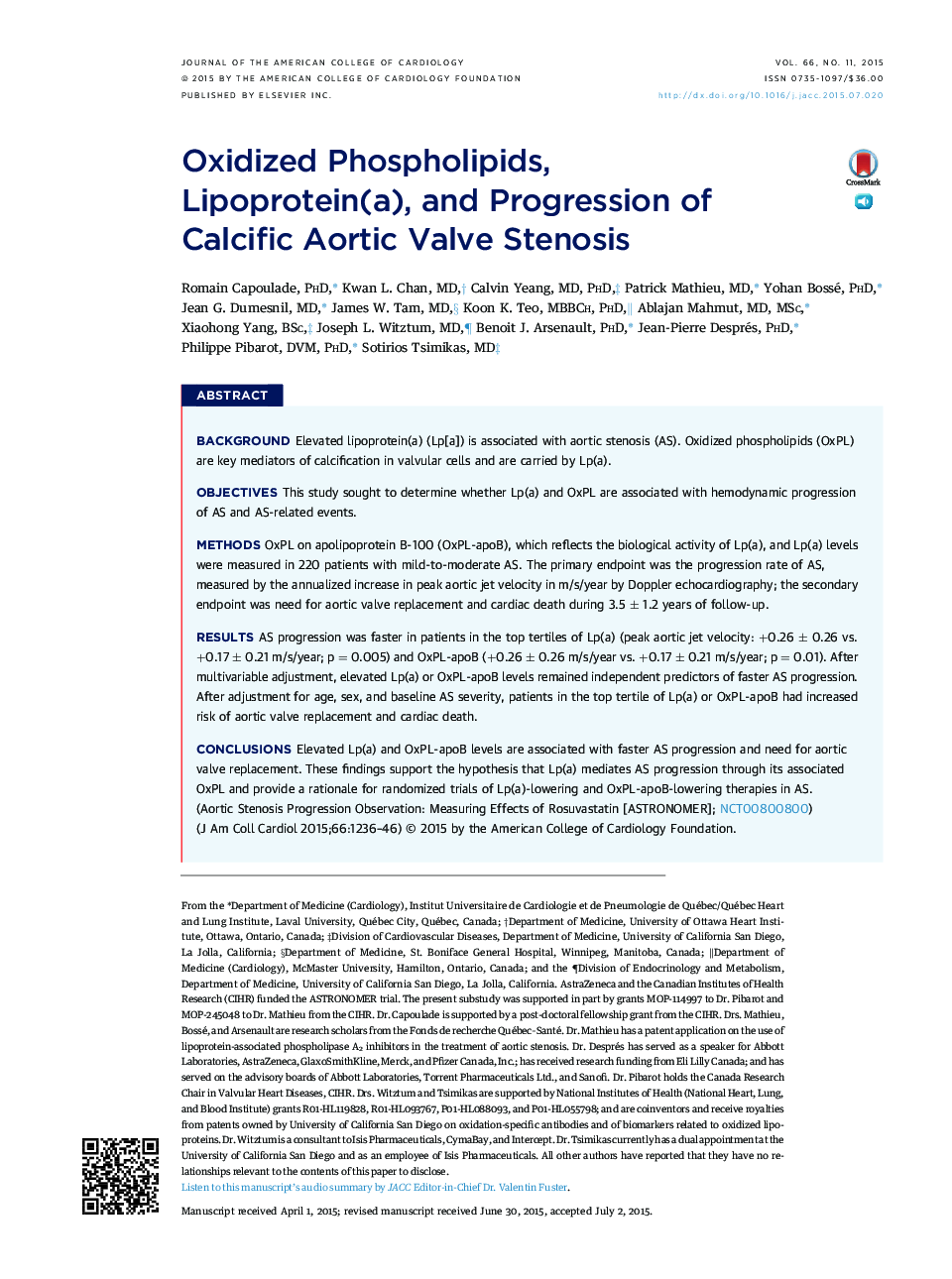| Article ID | Journal | Published Year | Pages | File Type |
|---|---|---|---|---|
| 5982433 | Journal of the American College of Cardiology | 2015 | 11 Pages |
BackgroundElevated lipoprotein(a) (Lp[a]) is associated with aortic stenosis (AS). Oxidized phospholipids (OxPL) are key mediators of calcification in valvular cells and are carried by Lp(a).ObjectivesThis study sought to determine whether Lp(a) and OxPL are associated with hemodynamic progression of AS and AS-related events.MethodsOxPL on apolipoprotein B-100 (OxPL-apoB), which reflects the biological activity of Lp(a), and Lp(a) levels were measured in 220 patients with mild-to-moderate AS. The primary endpoint was the progression rate of AS, measured by the annualized increase in peak aortic jet velocity in m/s/year by Doppler echocardiography; the secondary endpoint was need for aortic valve replacement and cardiac death during 3.5 ± 1.2 years of follow-up.ResultsAS progression was faster in patients in the top tertiles of Lp(a) (peak aortic jet velocity: +0.26 ± 0.26 vs. +0.17 ± 0.21 m/s/year; p = 0.005) and OxPL-apoB (+0.26 ± 0.26 m/s/year vs. +0.17 ± 0.21 m/s/year; p = 0.01). After multivariable adjustment, elevated Lp(a) or OxPL-apoB levels remained independent predictors of faster AS progression. After adjustment for age, sex, and baseline AS severity, patients in the top tertile of Lp(a) or OxPL-apoB had increased risk of aortic valve replacement and cardiac death.ConclusionsElevated Lp(a) and OxPL-apoB levels are associated with faster AS progression and need for aortic valve replacement. These findings support the hypothesis that Lp(a) mediates AS progression through its associated OxPL and provide a rationale for randomized trials of Lp(a)-lowering and OxPL-apoB-lowering therapies in AS. (Aortic Stenosis Progression Observation: Measuring Effects of Rosuvastatin [ASTRONOMER]; NCT00800800)
